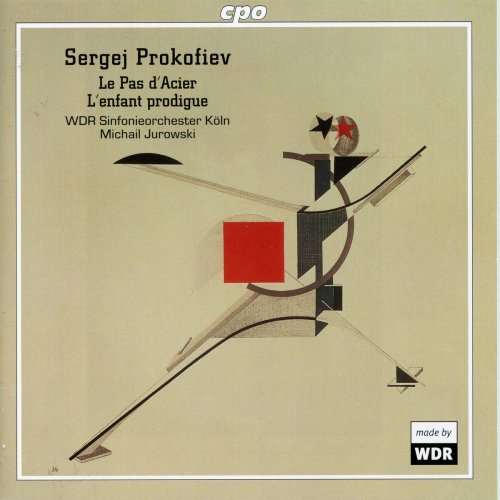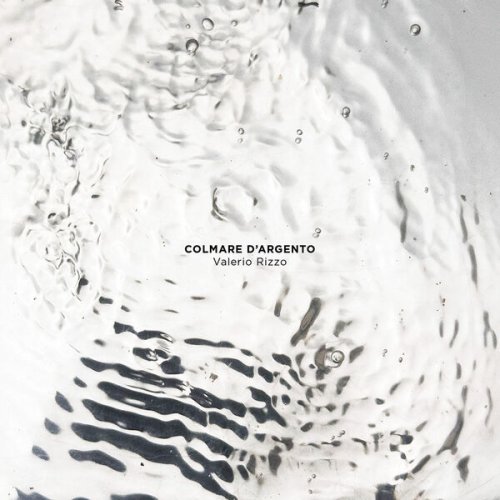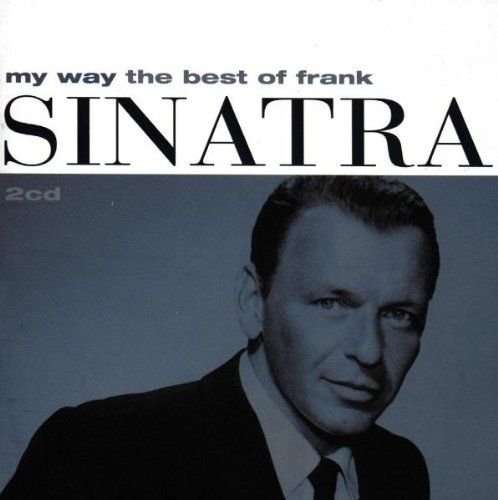WDR Sinfonieorchester Köln - Prokofiev: The Steel Step, Op. 41 & The Prodigal Son, Op. 46 (2003)

Artist: WDR Sinfonieorchester Köln
Title: Prokofiev: The Steel Step, Op. 41 & The Prodigal Son, Op. 46
Year Of Release: 2003
Label: CPO
Genre: Classical
Quality: FLAC (tracks)
Total Time: 72:58 min
Total Size: 319 MB
WebSite: Album Preview
Tracklist:Title: Prokofiev: The Steel Step, Op. 41 & The Prodigal Son, Op. 46
Year Of Release: 2003
Label: CPO
Genre: Classical
Quality: FLAC (tracks)
Total Time: 72:58 min
Total Size: 319 MB
WebSite: Album Preview
01. The Steel Step, Op. 41: I. Appearance of the Participants
02. The Steel Step, Op. 41: II. The Train of Trading Peasants
03. The Steel Step, Op. 41: III. Commissars
04. The Steel Step, Op. 41: IV. Toffee and Cigarette Vendors
05. The Steel Step, Op. 41: V. Orator
06. The Steel Step, Op. 41: VI. Sailor with a Bracelet and the Worker Girl
07. The Steel Step, Op. 41: VII. Change of the Scenery
08. The Steel Step, Op. 41: VIII. Sailor's Transformation into a Worker
09. The Steel Step, Op. 41: IX. Factory
10. The Steel Step, Op. 41: X. Hammers
11. The Steel Step, Op. 41: XI. Closing Scene
12. The Prodigal Son, Op. 46: I. The Departure
13. The Prodigal Son, Op. 46: II. Meeting with Friends
14. The Prodigal Son, Op. 46: III. The Temptress
15. The Prodigal Son, Op. 46: IV. The Dancers
16. The Prodigal Son, Op. 46: V. The Prodigal Son and the Temptress
17. The Prodigal Son, Op. 46: VI. Drinking Bout
18. The Prodigal Son, Op. 46: VII. The Robbery
19. The Prodigal Son, Op. 46: VIII. Awakening and Remorse
20. The Prodigal Son, Op. 46: IX. Sharing the Loot
21. The Prodigal Son, Op. 46: X. The Return
Prokofiev's 1927 ballet Le Pas d'Acier (The Step of Steel), given here in its rarely encountered complete form, is known for its motoric character and colorful scoring. Its sketchy story concerns the industrialization of the fledgling Soviet Union. Michail Jurowski's reading of the score is fairly straightforward and features excellent sound and fine playing by the WDR Sinfonie Orchester Köln. But occasionally the pacing is a bit deliberate and the phrasing bland, as in the opening number "Entrée des personages" and in the closing pair "Les Marteaux" (No. 10) and Finale (No. 11). The mechanistic qualities of the music -- so essential to any good performance of this work -- certainly come through with power in these numbers, and the epic and festive character of "Changement de décors" (No. 7) is brilliantly realized. Overall, it's a strong, if slightly flawed effort.
The same might be said of L'enfant prodigue (The Prodigal Son), also performed complete here. The work, inspired by the Biblical story, is more simply constructed (the writing is mostly two-part) and more tuneful. Jurowski draws out a generally fine performance, with exceptional orchestral balances. But, again, some of his tempo choices and phrasing can seem a tad lackluster, as in "L'enjóleuse," where the playing is only smooth and lively, not bouncy and spirited. Rozhdestvensky, who was a teacher of Jurowski, recorded both ballets with fine results in the mid-'80s for Melodiya. Järvi (Chandos) and Kuchar (Naxos) followed with strong recordings of The Prodigal Son. Jurowski's CPO account features better sound than any of these three and a fairly strong reading, too, though Rozhdestvensky is interpretively a rung or two higher in both works.
The same might be said of L'enfant prodigue (The Prodigal Son), also performed complete here. The work, inspired by the Biblical story, is more simply constructed (the writing is mostly two-part) and more tuneful. Jurowski draws out a generally fine performance, with exceptional orchestral balances. But, again, some of his tempo choices and phrasing can seem a tad lackluster, as in "L'enjóleuse," where the playing is only smooth and lively, not bouncy and spirited. Rozhdestvensky, who was a teacher of Jurowski, recorded both ballets with fine results in the mid-'80s for Melodiya. Järvi (Chandos) and Kuchar (Naxos) followed with strong recordings of The Prodigal Son. Jurowski's CPO account features better sound than any of these three and a fairly strong reading, too, though Rozhdestvensky is interpretively a rung or two higher in both works.




![The Mood Mosaic - Soul Seduction (2025) [Hi-Res] The Mood Mosaic - Soul Seduction (2025) [Hi-Res]](https://www.dibpic.com/uploads/posts/2025-12/1766135288_d5rmbmuwqtmya_600.jpg)

![Clifton Chenier - Squeezebox Boogie (1999) [Hi-Res] Clifton Chenier - Squeezebox Boogie (1999) [Hi-Res]](https://img.israbox.com/img/2025-12/20/cmlfho2wfdjon4pewnwrm16l7.jpg)
![The Mood Mosaic - The Sexploitation (Pulp Grooves From The Mondo Porno Vault) (2025) [Hi-Res] The Mood Mosaic - The Sexploitation (Pulp Grooves From The Mondo Porno Vault) (2025) [Hi-Res]](https://www.dibpic.com/uploads/posts/2025-12/1766131648_uhod8d4qn4msi_600.jpg)
![The Baroque Jazz Ensemble - The Baroque Jazz Ensemble (feat. Ira Schulman) (2025) [Hi-Res] The Baroque Jazz Ensemble - The Baroque Jazz Ensemble (feat. Ira Schulman) (2025) [Hi-Res]](https://img.israbox.com/img/2025-12/19/yehoqbmzkuwk180c26lz85clx.jpg)